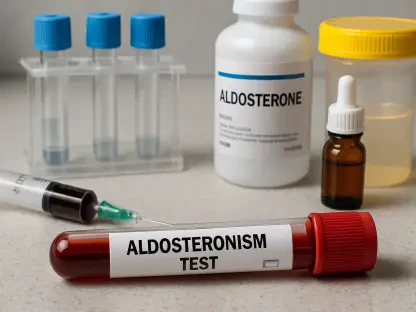Imagine walking into a pharmacy with a prescription, only to find that drug prices have skyrocketed beyond what you can afford. This alarming scenario has become increasingly common, highlighting the pervasive issues surrounding prescription drug prices in the U.S.
In a groundbreaking move, Arkansas has enacted new legislation aimed at curbing these exorbitant costs by prohibiting pharmacy benefit managers (PBMs) from owning pharmacies. This significant law challenges the traditional functions of PBMs, raising questions about their influence over drug prices and access.
Understanding PBMs: Key Players Behind Drug Pricing
Pharmacy Benefit Managers (PBMs) are central figures in the healthcare system, acting as intermediaries between drug manufacturers, insurance companies, and pharmacies. Their primary role includes negotiating discounts with drug manufacturers to secure favorable placements on insurance plans and reimbursing pharmacies for dispensing medications. However, their operations have increasingly come under scrutiny for their impact on drug pricing and access.
PBMs have been criticized for practices that many argue disadvantage independent pharmacies and inflate drug prices. Their ability to control drug formularies and negotiate prices has made them powerful players in the pharmaceutical landscape. This influence has led to growing concerns about conflicts of interest, especially when these entities own pharmacies, creating potential for biased decisions that benefit their affiliated establishments.
Arkansas’ Legislative Shift: Details of HB1150
The new Arkansas law, encapsulated in HB1150, specifically targets these conflicts of interest by barring PBMs from owning or operating pharmacies within the state. This prohibition is designed to ensure more equitable competition and prevent PBMs from steering business to their own pharmacies through preferential pricing and treatment.
Arkansas is not alone in this endeavor. Similar legislative efforts have been observed across various states in recent years, reflecting a national trend to regulate PBMs more stringently. These laws aim to enhance transparency and fairness within the drug pricing system, ultimately benefiting consumers by fostering a more competitive market environment.
Diverse Reactions to the New Law: Stakeholder Perspectives
Governor Sarah Huckabee Sanders has been a staunch advocate for this legislative change, arguing that regulating PBMs is essential to curbing their exploitative practices and reducing drug prices. She has hailed HB1150 as a crucial step toward eliminating these abuses and ensuring better access to medications for residents of Arkansas.
Conversely, major PBMs such as CVS, Cigna’s Express Scripts, and UnitedHealth’s Optum Rx have voiced strong opposition to the law. CVS has warned of potential closures of its numerous pharmacies in Arkansas, which they claim will disrupt services for hundreds of thousands of customers and result in job losses. Similarly, UnitedHealth has expressed concerns about the impact on their mental and behavioral health services, while Cigna has refrained from specific comments but remains affected by the legislation.
Lawmakers and independent pharmacy owners, on the other hand, are largely in support of the new law. They argue that it levels the playing field, enhancing competition and potentially lowering drug costs for patients. This diverse range of opinions underscores the complexity and significance of the issues at hand.
Expert Opinions and Findings
Industry experts and research findings have shed light on the practices of PBMs and their impact on drug pricing. The Federal Trade Commission (FTC) has reported that the largest PBMs—CVS’ Caremark, Cigna’s Express Scripts, and UnitedHealth’s Optum Rx—frequently engage in practices that unfairly disadvantage independent pharmacies. This includes paying them lower rates compared to their own subsidiaries and imposing various fees.
A coalition of 39 state and territory attorneys general has also supported Arkansas’s legislative move, advocating for similar measures at the federal level. They argue that prohibiting PBM-owned pharmacies would foster competition, improve consumer access to pharmaceutical care, and drive down drug costs. Legal perspectives from this coalition highlight the importance of such reforms in addressing the broader implications of PBM practices.
Practical Implications for the Healthcare System
The enactment of HB1150 has the potential to bring several benefits to the healthcare system, particularly for independent pharmacies and consumers. By reducing conflicts of interest, the law may enhance competition, leading to lower drug prices and improved access to medications. Increased transparency in PBM operations could also help hold these entities accountable for their pricing decisions.
States looking to replicate Arkansas’s approach can adopt similar strategies to address PBM-related challenges. This includes passing legislation that promotes fair competition, transparency, and accountability in the pharmaceutical industry. Enhanced regulatory frameworks can contribute to mitigating the adverse effects of PBM practices on drug pricing and access.
In conclusion, Arkansas’s pioneering law marked a significant effort to regulate PBMs and tackle the multifaceted challenges posed by their business practices. While the enactment of HB1150 represented a critical step in addressing conflicts of interest within the pharmaceutical industry, its reception was mixed. PBMs expressed concern about potential disruptions and negative impacts on patient care and employment, whereas proponents argued it paved the way for greater competition and reduced drug costs. As states continued to explore solutions to mitigate soaring drug prices, the Arkansas law served as a crucial reference point for ongoing legislative efforts across the country.









